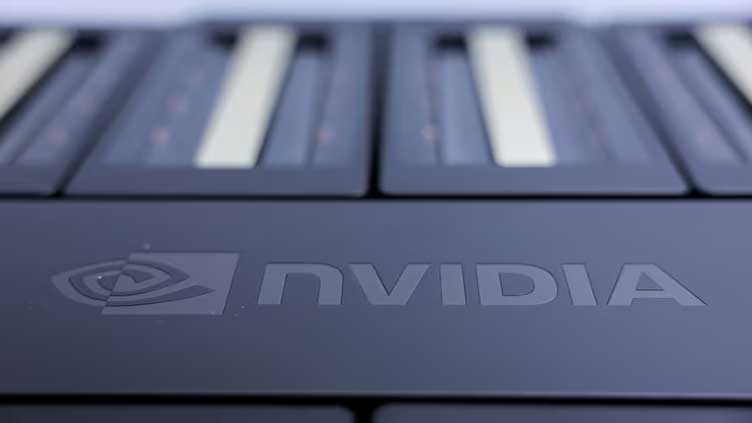Nvidia and chip index tumble as investors pause AI rally

Technology
Nvidia and chip index tumble as investors pause AI rally
(Reuters) - Shares of AI heavyweight Nvidia tumbled on Tuesday, with Wall Street's chip index slumping 7% as investors softened their optimism about AI in a broad market sell-off following tepid economic data.
Nvidia, viewed as Wall Street's biggest winner in a race to dominate emerging AI technology, dropped over 8%, while the PHLX chip index was on track for its deepest one-day percentage drop in a month.
With Tuesday's decline, Nvidia's stock has now fallen 13% since last Wednesday, when its quarterly forecast failed to meet the lofty expectations of investors who drove a dizzying rally in its stock.
"September is seasonally a very weak month of the year, so I think people are nervous," said Dennis Dick, a trader at Triple D Trading. "I don't think the AI rally is over."
Intel dropped 7% after Reuters reported CEO Pat Gelsinger and key executives are expected to present a plan to the company’s board of directors to slice off unnecessary businesses and revamp capital spending at the struggling chipmaker.
"Some recent research has questioned if the revenues from AI alone will eventually justify this wave of capital spending on it. When assessing AI capex by individual companies, investors must consider if they are making the best use of their balance sheets and capital," BlackRock strategists wrote in a client note on Tuesday.
At its July record-high close, Nvidia had almost tripled in 2024. Its recent losses leave it up 122% year to date.
However, minority expectations of a 50 basis point cut rose to 37% from 30% after data on Tuesday signaled activity in the manufacturing sector remains soft.
The chip index is now up 15% in 2024, just under the S&P 500's 16% gain.
Following Nvidia's quarterly report last week, the mean analyst estimate for annual net income through January 2025 has climbed to $70.35 billion from about $68 billion ahead of last week's report.
Those increased earnings estimates, combined with Nvidia's share losses, have the chipmaker now trading at 34 times expected earnings, down from over 40 in June and in line with its two-year average.
Broadcom, another chipmaker that has benefited from the boom in AI computing, fell 5.6% ahead of its quarterly report on Thursday.


